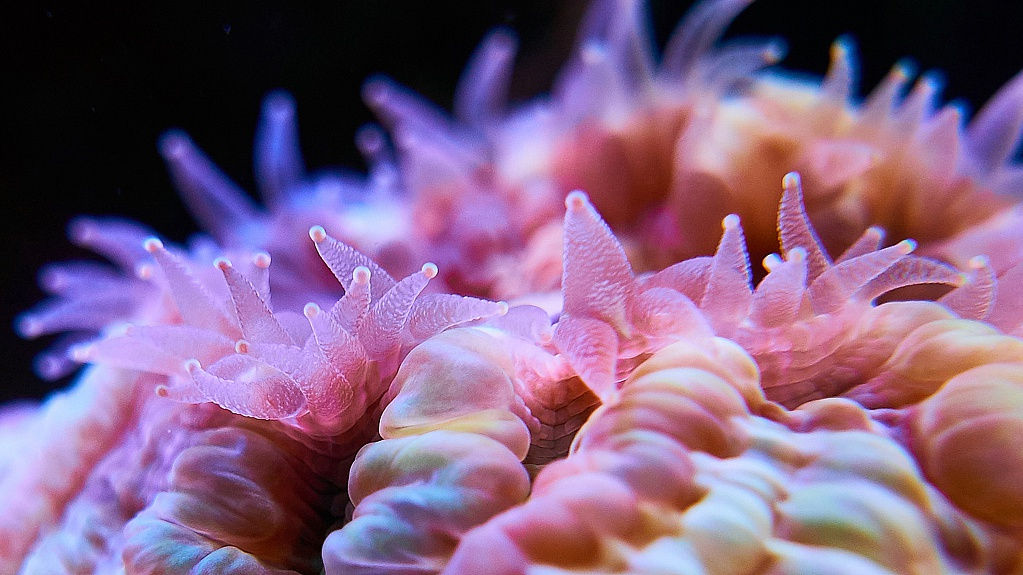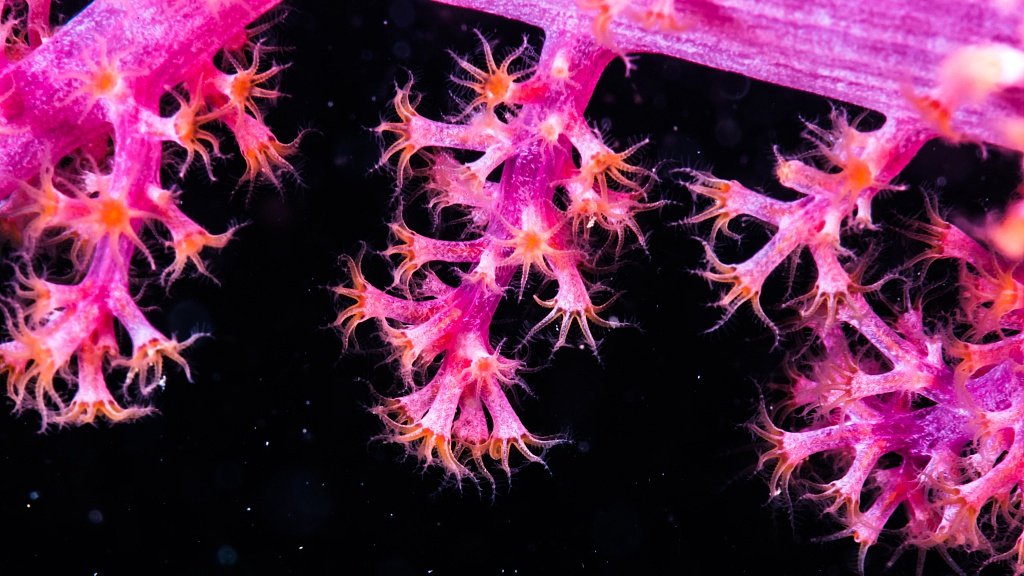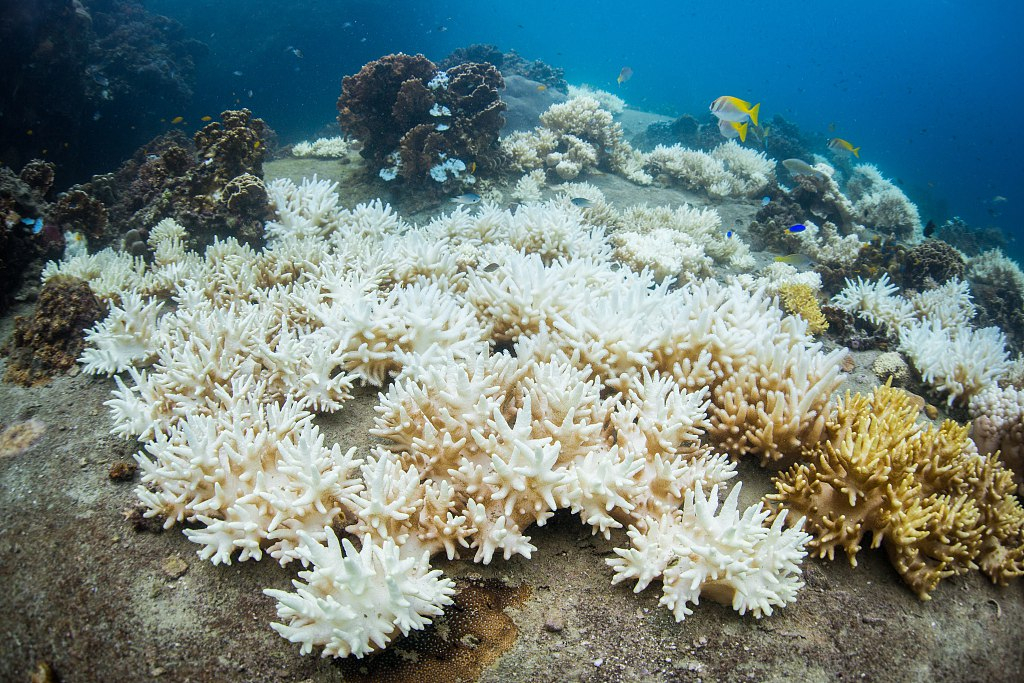For the first time ever, scientists have found corals that were thought to have been killed by heat stress have recovered, shedding a glimmer of hope for the world's reefs that are threatened by climate change.
The chance discovery, made by Diego K. Kersting from the Freie University of Berlin and the University of Barcelona during diving expeditions in the Spanish Mediterranean, was reported in the journal Science Advances on September 9.

Coral are made up of hundreds to thousands of tiny creatures called polyps. /VCG Photo
Coral are made up of hundreds to thousands of tiny creatures called polyps. /VCG Photo
Coral are made up of hundreds to thousands of tiny creatures called polyps that secrete a hard outer skeleton of calcium carbonate (limestone) and attach themselves to the ocean floor. Heat waves kill these animals -- by either essentially roasting them alive or causing them to eject the symbiotic algae that live within them and provide them nutrients, thus leading to coral bleaching.

Close up of polyps. /VCG Photo
Close up of polyps. /VCG Photo
A quarter of the coral cover of Spain's Columbretes Islands was lost to a particularly extreme heat wave in 2003.
But the researchers found that in 38 percent of the impacted colonies, the polyps had devised a survival strategy: shrinking their dimensions, partly abandoning their original skeleton, and gradually, over a period of several years, growing back and starting a new skeleton.

Bleached corals. /VCG Photo
Bleached corals. /VCG Photo
They were then able to gradually re-colonize dead areas through budding.
In order to be sure the polyps were in fact the same animals staging a comeback, rather than new coral created through sexual reproduction, the team used 3D computer imaging to confirm the old, abandoned skeleton was connected to the new structure.
This process of "rejuvenescence" was known to exist in the fossil record but had never before been observed in coral colonies that exist today.

Coral reefs in the Caribbean Sea. /VCG Photo
Coral reefs in the Caribbean Sea. /VCG Photo
Kersting said the finding opens up the intriguing possibility that other modern corals around the world. It also meant that there was a narrow window of opportunity to prevent coral reefs, vital ecosystem engineers that provide shelter for hundreds of species of fish and plants, from going extinct as a result of climate change.
(Cover image via VCG)
(If you want to contribute and have specific expertise, please contact us at nature@cgtn.com)
Source(s): AFP